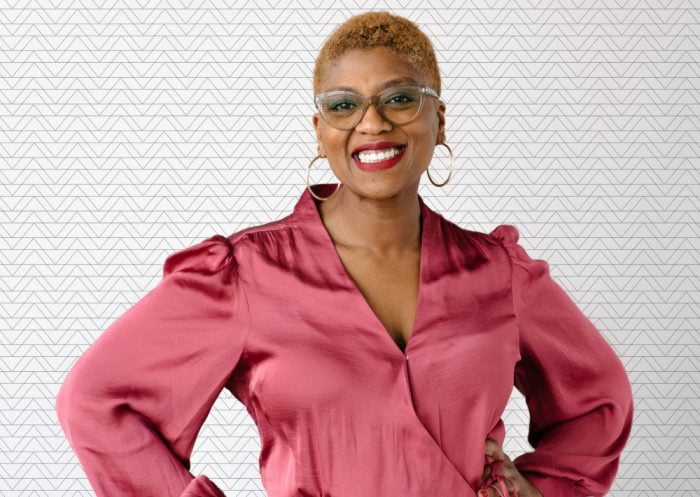
“‘They always say time changes things, but you actually have to change them yourself,’” said Radical Change founder and CEO Vonda Page, quoting one of her favorite artists, Andy Warhol, during her recent keynote presentation at the Infotec 2021 virtual conference.
“What types of changes happen over time with no effort?” she asked rhetorically, setting herself up to answer with an insight that was amplified by its understatement: “I can’t really think of any.”
Page describes herself as a “STEMinist”—an advocate for increased diversity, equity and inclusion in the traditionally male-dominated disciplines of science, technology, engineering and math. She encourages companies to reimagine innovation as more than the domain of new products and processes, but as a sustained, ambitious, collective effort of imagination inextricably linked to the advancement of society.
“(Innovation is) about looking for that unheard of or outlandish idea that, when adopted, could spur meaningful and radical change,” she said.
Page is no stranger to change. In an interview with SPN last week, she said she’s always been an early adopter of new technology.
As a tenth grader, the future entrepreneur landed a position at a small insurance office. A few days into her first-ever job, the company bought a fax machine (it was 1984). However, Page’s boss did not want to read the enormous operation manual that came with it. So, he asked her to figure it out—and then to teach him.
She would go on to become the de facto troubleshooter for the rest of the office whenever her employer would purchase new hardware or software. In college and grad school, she worked in restaurants and hotels and began wondering how new technologies, structures and systems impacted people.
“(For instance,) how does the new ordering system impact the dishwasher? Oh, nobody even thought it could impact the dishwasher, because you think it just affects the waitress who’s taking the order or the chef who’s fixing it,” she said.
This interest in the intersection between people and tech laid the foundation for a robust career that has led her to roles in various companies, ranging from web developer to organizational change manager. She describes the latter as someone who positions teams and companies for success so that change “doesn’t suck.”
Her most recent role at payment-processing giant Paypal allowed her to develop a connection with Omaha that continues into the current phase of her journey as entrepreneur.
“What I’ve always liked is the integration of technology into business,” she said. “You really can’t separate the two.”
In 2020, as the pandemic ramped up and widespread protests over violence against Black people dominated headlines, Page launched Radical Change, a startup focused on learning, coaching and advisory services.
“Technology can be intimidating, especially for young girls and women—even nowadays—because it’s still such a male-dominated profession, (especially) the highly technical jobs like engineering, where we haven’t increased the number of women in those roles in the last 20 years we’ve been keeping statistics on it,” she said.
In fact, the Society of Women Engineers has found that only 30% of women who earn an engineering degree are still working in the profession 20 years later. While multiple reasons could account for that—such as motherhood, a change in interests or opportunities, retirement and so on—at least 30% of women who did leave the profession cited organizational climate as the reason.
Page offered a possible explanation for the gender disparity in highly technical roles: “It’s a communication thing, and it’s a style.”
She noted that a lot of men working in technology tend to enjoy focusing really hard on one specific technical skill. This leads them not to have as many interactions with different people, whereas she believes women enjoy working more with others.
“A lot of women nowadays are in roles such as product manager, program manager and other roles where you’re not just focused on the technology, but you have to have a complete and total view, and having that total view is more impactful when you’re…trying to do a big effort or a large body of work.”
Granted, she said, women do have to deal with things that men don’t, such as being judged on appearance, tone of voice and other superficialities. But, she added, sometimes this can actually be an advantage.
“You really have to bring your voice to the table because you don’t have as many opportunities to talk,” she said. “You have to listen, understand, and add value relatively quickly.”
That said, Page singled out the AIM Institute and Prairie STEM for “looking at the bigger picture” and working to strengthen and diversify the IT workforce, something she’s long been interested in as a mentor to young women and people of color in technology.
“Throughout my career, being a Black woman, I’m always the only one, and so I always have gravitated towards mentoring young people (and helping them to understand that) even though there’s not a lot of people that look like you, you still belong here,” she said. “Everybody belongs in tech.”
To view Page’s Infotec 2021 keynote address, please visit the AIM Institute YouTube channel.
